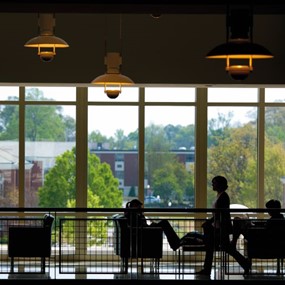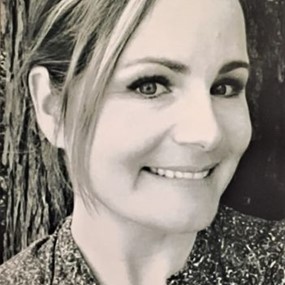Caring contributions: Auburn Family's generosity covers costs for children needing autism services at AUPSC
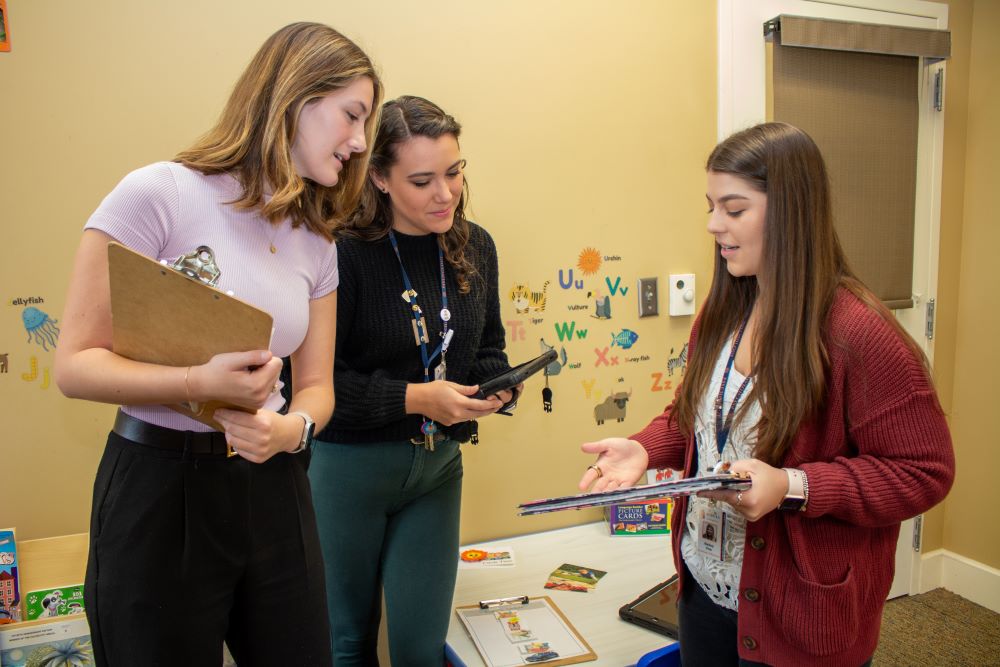
In 2024, donor support funded the cost of care for every child and family's autism assessment services at the Auburn University Psychological Services Center (AUPSC) and the Center for Autism Research, Treatment and Training (CARTT).
One in 36 children are diagnosed with autism, but many families cannot afford the cost of therapy. The AUPSC and CARTT provide crucial diagnostic services and high-quality behavioral interventions to children and families in the community.
"One of the biggest challenges faced by families seeking autism services is the cost," said Associate Clinical Professor and AUPSC Director Nadia Bhuiyan. "Recognizing this barrier, CARTT and AUPSC are committed to making their services accessible to all. This year marks the first time CARTT and AUPSC have been able to support 100% of all student and client costs through the generosity of community donors and sponsors."
CARTT identifies and assesses autism spectrum disorder, conducts behavioral interventions, trains social skills, empowers families to be caregivers and educates the community.
Graduate students in the Department of Psychological Sciences' Applied Behavior Analysis (ABA) master's program and clinical psychology doctoral program serve as clinicians in the clinic.
"In addition to supporting client services, donations also fund intensive training for graduate students," said Clinical Associate Professor and ABA Program Director Sarah Richling. "By investing in our students, we are investing in the future of autism care in our community and beyond. Our graduates go on to fill a critical need for qualified autism service providers."
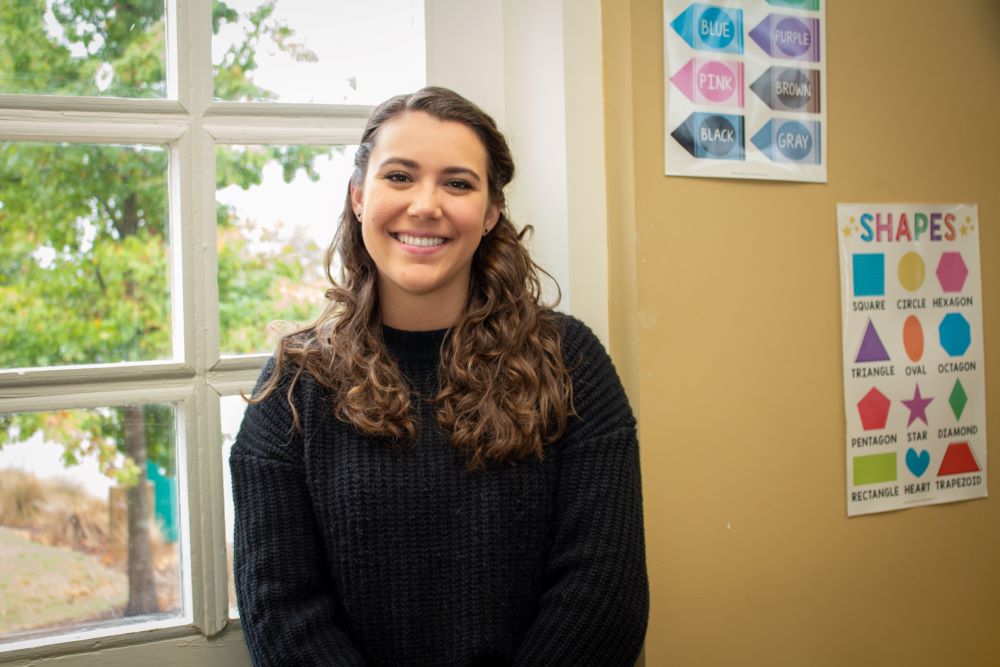
Trainings that have been funded by donor generosity, which would've had to come from my own pocket or other sources of funding, have improved my practice and made it so I’m able to provide a higher quality of care for our families in need. ~ Cassidy Brydon Chesnutt
Graduate Student Clinician
Caroline Glahn, a graduate student in the ABA master's program, creates and implements behavior plans for families at CARTT. She designs each plan to support the child's social skills, behavior and independent functioning while combining learning and playing.
Last year, Glahn helped treat a child who began the first session unable to respond to their own name. By the end of the year, the child was responding to their name, potty trained, following basic instructions and using a picture system to communicate.
Glahn said the most rewarding part of her work is seeing the impact it has on children's lives.
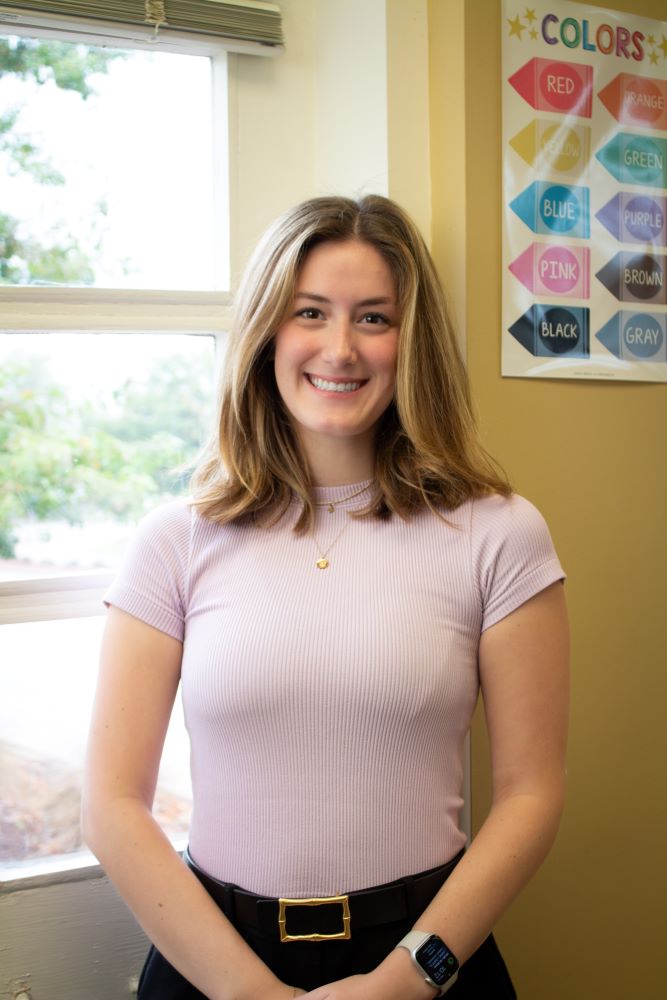
"The CARTT clinic does not require a formal diagnosis, which allows us to serve a wider variety of families," Glahn said. "The clinic's focus on socially significant behaviors ensures that our work has a meaningful impact – whether it's teaching a child to communicate their needs or helping them develop the skills to navigate daily life more independently."
Giving fully supported Glahn's first year tuition in the master's program. That financial assistance is a large part of why she attended Auburn University and discovered her passion for ABA at the clinic.
Glahn said she's "deeply grateful for" the support of the Auburn Family and encourages those who can give to help families who require individualized care for their child.
"ABA therapy is essential for many families, yet it can be prohibitively expensive," Glahn said. "Donations enable us to continue offering high-quality, affordable services to families in need. The clinic relies heavily on support, and without it, we would not be able to provide the level of care and training that we do. It's thanks to generous individuals that we can sustain and expand these critical services for the Auburn community."
We are helping to shape, guide and educate the future generations of service providers. The value that graduate students bring to the clinic can be seen with the increased number of people we can serve, so continued giving will really have a ripple effect across generations. ~ Madeleine Levin
CARTT Co-Director
Hailey Fox, a doctoral student and graduate clinician at AUPSC, is working to further expand affordable, quality services like those at Auburn to the entire state.
Fox met with the Alabama Autism Providers Network to evaluate and address statewide challenges to autism spectrum disorder (ASD) service delivery. High demand for autism services and a shortage of qualified providers has led to limited access to services, high costs and long waiting lists across Alabama.
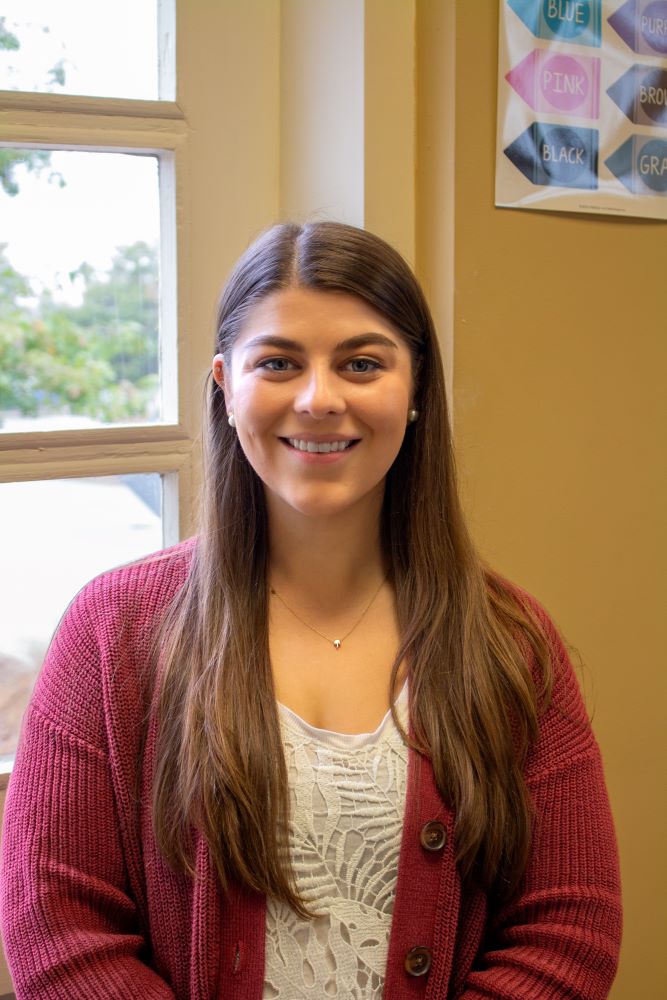
"By providing ASD evaluation services at Auburn, AUPSC is helping to increase access to affordable care while simultaneously training future clinicians to conduct evidence-based ASD assessments for individuals and families," Fox said. "This is so critical as research supports that early detection and intervention are associated with better long-term developmental and psychosocial outcomes for individuals with ASD and other neurodevelopmental disorders."
Fox and the AUPSC team evaluate and provide recommendations for families in Auburn, Opelika and surrounding communities, including Montgomery, Birmingham and Columbus.
The clinic accepts clients across the lifespan, but Fox said most of her cases are very young children. Because of donor support, families do not have to worry about the cost of care. Instead, Fox helps them navigate their child's diagnosis and foster a long-term relationship with the clinicians who can support their child's healthy development.
"It can be very overwhelming for caregivers to learn that their child has been diagnosed with a neurodevelopmental disorder. Therefore, it is so critical that we take a client- or family-centered approach to providing that feedback," Fox said. "We do this by balancing their child's differences in social interactions, communication and behaviors with the child's individual strengths, like creativity or kindness. I love that we can be a source of support for families and help them to better understand and connect with their child."
Support families in need and future clinicians by giving to CARTT.
Tags: Psychological Sciences Students Community, Outreach and Engagement



